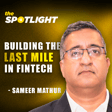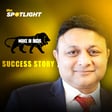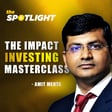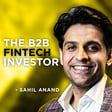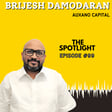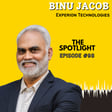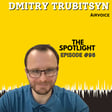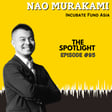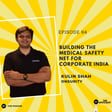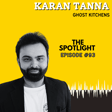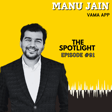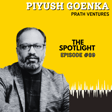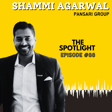
The non-techie who built an AI Startup | Preksha Kaparwan (Alphaa AI / Super AI)
"If you focus on the challenges that life and society throw at you, you'll miss out on the places you were meant to go." This powerful philosophy from Preksha Kaparwan, Co-founder & CMO of Alphaa AI / Super AI, encapsulates her incredible journey of resilience, from a professional chef to a leader in the competitive AI technology sector.
Preksha Kaparwan is the Co-founder and CMO of Alphaa AI, which has evolved into Super AI, a company building private Large Language Models for enterprise clients like Procter & Gamble, MiQ, and Accenture. Her ventures have attracted strong investor interest, with both Alphaa AI Inc. and Super AI securing substantial funding. Her earlier Indian entity, Alphaa Ai Data Private Limited, reported notable revenue growth in FY24, more than doubling compared to the previous year. A self-taught coder, she built her first commercial website in just a week and has co-nurtured a thriving community of thousands of citizen data scientists.
Key Insights from the Conversation:
- An unconventional career path, like Preksha's from a chef to a tech CMO, can provide unique industry insights and drive innovation.
- Proactively acquiring new skills, such as learning to code on demand, is crucial for entrepreneurs identifying and solving real-world problems.
- "Building in public" by transparently sharing development progress can be a powerful marketing and talent attraction strategy.
- Developing proprietary technology, like Super AI's native Large Language Model, can be a key differentiator, especially for enterprise data security and customization.
- Resilience is paramount: navigating burnout, financial hardships, and tough decisions like pandemic-era layoffs are part of the entrepreneurial journey.
- A strong co-founder relationship is vital for navigating multiple ventures and technological pivots over many years.
- Focusing on making complex technology accessible to non-technical users (e.g., "training-less" systems, empowering "citizen data scientists") can unlock significant market opportunities.
Chapters:
- [0:00:55] From Flying Jets to a Chef's Kitchen: Preksha's Early Dreams
- [0:12:19] Excelling in Hotel Management & Becoming a Sous Chef at Imperial
- [0:20:10] The Grueling Life of a Chef & The Difficult Decision to Quit
- [0:24:48] Journey into Tech: Meeting Saurabh & First Stint in Sales
- [0:28:37] "I Need to Build This": Learning to Code in a Month
- [0:30:27] Founding Realbox: Building a Real-Time Data Analytics Platform
- [0:37:31] The Pivot to Voice & AI: Early Experiments with Alexa & Google Home
- [0:43:26] Birth of Alphaa AI: Dynamic NLP for Business Intelligence
- [0:46:33] The Art of B2B SaaS Marketing: Founder-Led & Value-Driven
- [0:51:19] Becoming a LinkedIn Influencer: Sharing the Journey Authentically
- [0:57:35] The Future: From Excel Add-Ins to Prescriptive AI
Hashtags for YouTube Description:
#PrekshaKaparwan #AlphaaAI #SuperAI #AIstartup #TechEntrepreneur #WomenInTech #FounderJourney #StartupIndia #MakeInIndia #DataAnalytics #EnterpriseAI #LLM #ConversationalAI #Bootstrapping #VentureCapital #LinkedInMarketing #BuildingInPublic #CareerPivot #StartupMotivation #IndianStartups #SaaS #Entrepreneurship #ArtificialIntelligence #BigData



